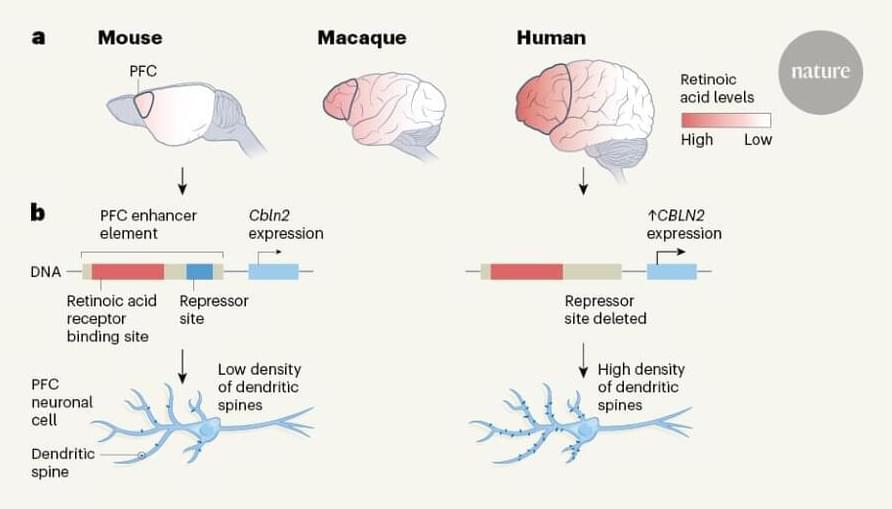Your Station, Your Views, Your Voice. Donate now to help keep your voice alive.



“Our study is the first to discover that stimulation of the FFAR2 sensing mechanism by these microbial metabolites (SCFAs) can be beneficial in protecting brain cells against toxic accumulation of the amyloid-beta (Aβ) protein associated with Alzheimer’s disease,” said principal investigator Hariom Yadav, PhD, professor of neurosurgery and brain repair at the USF Health Morsani College of Medicine, where he directs the USF Center for Microbiome Research.
Fenchol, a natural compound abundant in some plants including basil, can help protect the brain against Alzheimer’s disease pathology, a preclinical study led by University of South Florida Health (USF Health) researchers suggests.
The new study published Oct. 5 in the Frontiers in Aging Neuroscience, discovered a sensing mechanism associated with the gut microbiome that explains how fenchol reduces neurotoxicity in the Alzheimer’s brain.

Although the idea of having a small device implanted in our skulls might sound terrifying to some, deep brain stimulation has had a successful past in other brain disorders such as Parkinson’s disease and epilepsy.
Depression can be a frighteningly relentless condition. Luckily, researchers around the world are constantly working on new treatment options, such as a newly designed brain implant for resistant depression.
Altogether, up to a third of people with depression don’t respond or become resistant to treatment. No medication or therapy type seems to help. For those with such treatment-resistant depression, the future can look especially bleak.
This is what happened to Sarah, a 36-year-old woman who’s had severe and treatment-resistant depression since she was a child. But a new proof-of-concept intervention has provided significant relief for Sarah, and could offer hope for many like her. The only catch? It requires a custom-designed ‘brain pacemaker’ for each person.


“We are going to get so wrecked,” he added.
The kind of value systems that humans have used to structure societies over history — regardless of their success in bringing about meaningful change — may soon no longer be relevant.
“Idk, I think the broader point is just that machines might end up having a lot more flexibility on how they organize themselves than we do,” Hodak pondered in a follow-up tweet. “It takes generations to upgrade cognitive technology in human societies.”

Brains aren’t the easiest of organs to study, what with their delicate wiring and subtle whispering of neurotransmitter messages. Now, this research could be made a little easier, as we’ve learned we can swap some critical chemical systems with the host animal being none the wiser.
In a proof-of-concept study run by a team of US researchers, the microscopic worm Caenorhabditis elegans was genetically gifted pieces of a nervous system taken from a radically different creature – a curious freshwater organism known as Hydra.
The swap wasn’t unlike teaching a specific brain circuit a foreign language, and finding it performs its job just as well as before.

Developing drugs for a range of tauopathies — dr leticia toledo-sherman, senior director, drug discovery, tau consortium, rainwater charitable foundation.
Dr. Leticia Toledo-Sherman is Senior Director of Drug Discovery of the Tau Consortium (https://tauconsortium.org/) for The Rainwater Charitable Foundation (https://rainwatercharitablefoundation.org/medical-research) and also holds an appointment as Adjunct Assistant Professor of Neurology at UCLA.
Dr. Toledo-Sherman leads drug discovery activities for an international network of scientists working to develop therapies for Tauopathies, a group of neurodegenerative disorders characterized by the deposition of abnormal Tau protein in the brain.
Previously, Dr. Toledo-Sherman was Director of Medicinal Chemistry and Computer-Aided Drug Design at the CHDI Foundation, leading drug discovery programs for therapeutic development in Huntington’s Disease (HD). At CHDI, she also led a structural biology initiative critical to the understanding of the relationship between structure and biological function of huntingtin, the protein that when mutated causes HD.
Prior to joining CHDI, Dr. Toledo-Sherman was Executive Director of Chemistry at Lymphosign (now part of Pharmascience Inc), a privately held biotechnology company that applied rational design principles to the development of therapeutics for blood cancers. From 2000 to 2,004 she led a multi-site, multidisciplinary team using chemical proteomics and bioinformatics to discover therapeutic targets and to investigate the mechanism of action of drugs.

Summary: When people engage in complex thoughts, their brain networks organize into fractal-like patterns.
Source: Dartmouth College.
Understanding how the human brain produces complex thought is daunting given its intricacy and scale. The brain contains approximately 100 billion neurons that coordinate activity through 100 trillion connections, and those connections are organized into networks that are often similar from one person to the next.